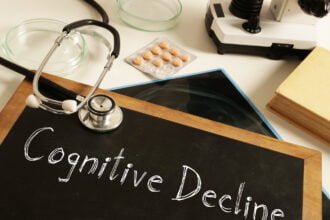

 There are many traditional medicines for promoting longevity and life extension. Although we can measure their direct effects, its more holistic influence is a bit more tricky to understand. For example, during research, you might get one bout of subjects who lived longer than their ancestors, but then the researcher may die before the second sample passes away and, as you can imagine, an investigator’s death is one of those pesky obstacles known to halt research.
There are many traditional medicines for promoting longevity and life extension. Although we can measure their direct effects, its more holistic influence is a bit more tricky to understand. For example, during research, you might get one bout of subjects who lived longer than their ancestors, but then the researcher may die before the second sample passes away and, as you can imagine, an investigator’s death is one of those pesky obstacles known to halt research.
Nevertheless, many herbs and supplements are said to promote longevity. It is important to note that they cannot prove or even suggest that this stuff adds years to one’s life, which is why, when you hear about something ‘increasing longevity’ from traditional medicine, it usually refers to adding life to years as opposed to the converse. In other words, it increases the vitality and virility of elderly persons or just prevents ailments from affecting the elderly.
In more practical terms, these traditional medicines appear to have the ability to attenuate cognitive and physical decline with aging. Garlic, in particular, may have promise in the treatment of Alzheimer’s disease.
How does garlic influence Alzheimer’s?
Alzheimer’s disease, regardless of what the initial problem(s) is/are, is characterized by buildup of protein aggregates or ‘brain plaque’ that causes damage to brain cells. The accumulation of this plaque and the damage they cause then promote degeneration of the brain, and while this is common to both Parkinson’s and Alzheimer’s (both diseases associated with protein aggregates causing oxidative stress) Alzheimer’s is diagnosed more by memory loss and damage to particular systems of the brain that use the learning neurotransmitter acetylcholine.
The standard therapies for Alzheimer’s at this moment in time are known as acetylcholinesterase inhibitors, which prevent acetylcholine from declining and abrogate a good deal of the memory symptoms.
Garlic acts in a different manner, since it doesn’t influence acetylcholine signalling much (if at all). It actually appears to have the ability to disintegrate the protein aggregates in the brain both when tested outside of the body (source) and in living mice (source)while some other bioactives in garlic can prevent the oxidative damage from already formed protein aggregates from hurting brain cells or just reduce their synthesis outright (source)(source).
Garlic still appears to be ‘treating the symptoms’ of Alzheimers since the proteins are just an intermediate in the problems, but it is at a level before the reference drugs and before brain damage actually occurs. While it seems to beneficially influence all aspects of these protein aggregates and their pathological accumulation, it is weakly to moderately potent and so its relevance in humans unknown.
We can make said relevance known, however, by just feeding garlic to living creatures with Alzheimer’s to see what happens.
Have there been studies conducted?
At this moment in time there are no human studies conducted, but a surprising amount in mice.
There is actually a mouse research model called SAMP8, which is used to research longevity promoting agents since the SAMP8 mice have accelerated aging when compared to normal mice. A few decades ago, a battery of studies noted that adding 2% of the diet to mice as aged garlic extract noted that their lifespan was normalized to normal mice which initially suggested an antiaging effect (source)(source) although the one study giving garlic to mice who were a bit resistant to the aging process (SAMR1) failed to find an effect (source) and there is another age-accelerated mouse model (SAMP10) which failed to find an effect (source). Garlic is beneficial in a few mice models, but it is by no means a universal longevity promoting agent according to the above. One common thread that was noted, however, was that all mice including the SAMR1 had a reduce rate of brain shrinking during the aging process and better cognitive scores in older age.
Then it was later found out that SAMP8 mice is actually a really good research model for Alzheimer’s disease (source), so the above research showing improved cognitive scores during the aging process also suggests protective effects in persons with Alzheimer’s, and this was confirmed with using a completely different mouse model which also measured Alzheimer’s disease (Tg2576 mice)(source).
Summation
Garlic appears to be a promising intervention for Alzheimer’s by beneficially influencing the things that cause neruonal damage (protein aggregates) rather than intervening at a later stage, but doesn’t appear to be a ‘curative’ effect for Alzheimer’s either; somewhere in between the two.
It does not have human studies at this point in time, but the animal studies are very promising and use the dosages seen in other studies (particularly those in cholesterol) which are known to apply to humans.








